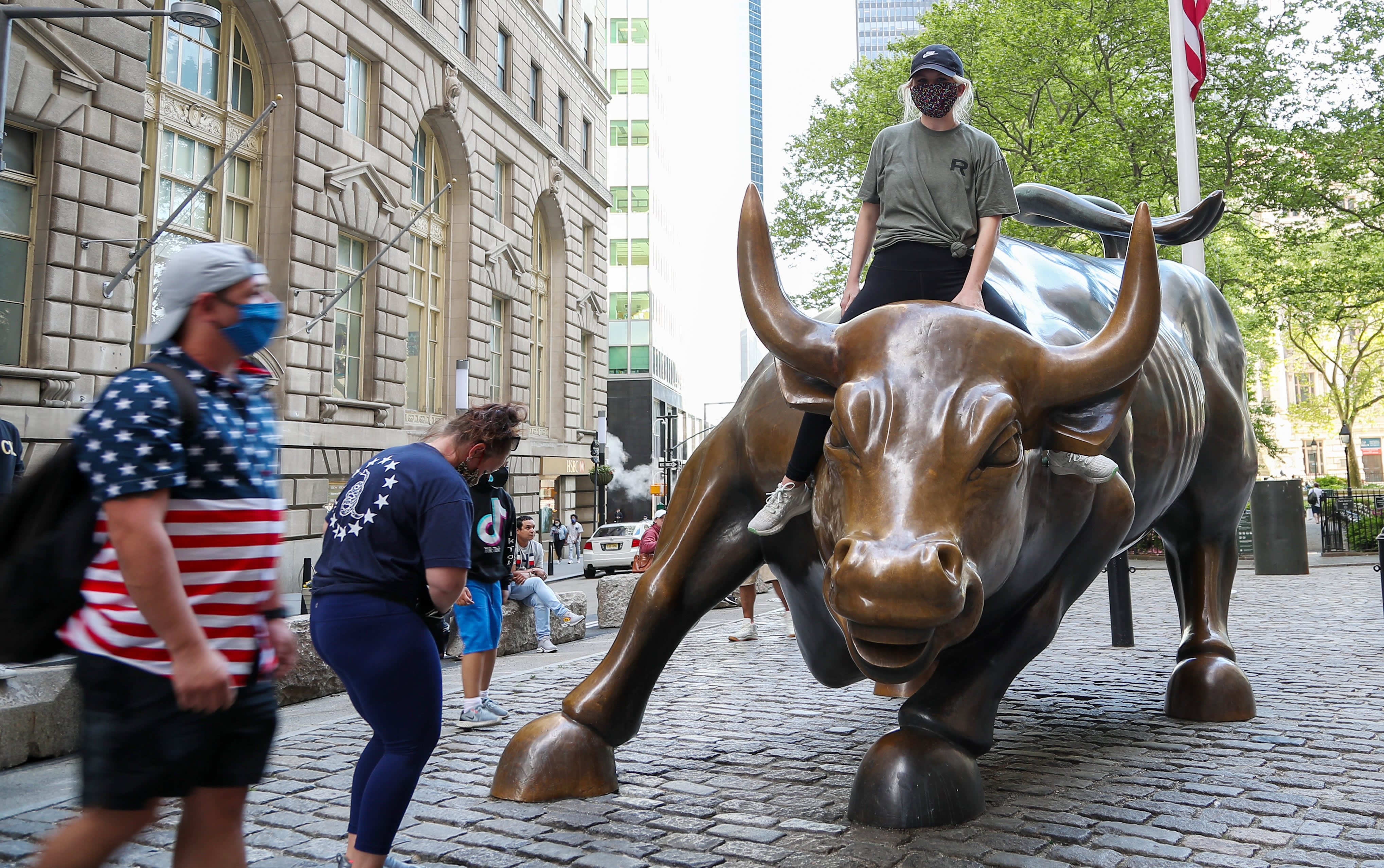
People visit the Charging Bull statue during the Covid-19 pandemic in New York.
Tayfun Coskun | Anadolu Agency | Getty Images
Futures contracts pegged to the major US stock indices ticked higher at the start of the overnight session on Wednesday evening, suggesting that Wall Street could extend the gains that pushed the S&P 500 to record levels this week.
Futures linked to the broad stock index were up about 0.1%, while Nasdaq 100 contracts added a similar 0.1%. Dow futures were up 20 points.
The moves in the expanded trading came after a late pop in the S&P 500 pushed it to 4,079.95, a new close high. The Dow Jones Industrial Average was up 16 points or 0.1% during the regular session.
The tech-heavy Nasdaq Composite was down 0.1%, even as Big Tech stocks outperformed. Amazon, Apple, and Alphabet all climbed more than 1%, while Facebook jumped 2.2%.
Both the Dow and S&P 500 notched records close on Monday.
Investors seemed to calm down during Wednesday’s session from the Fed’s latest minutes, which showed officials plan to keep the pace of asset purchases the same for a while as the central bank works towards stable prices and maximum employment. .
According to Evercore ISI equity strategist Dennis DeBusschere, the market is not entirely convinced that robust economic growth and inflation will not force the central bank sooner.
“The market is predicting that the Fed will have to raise rates before they say they will,” he said in an email. “The question is whether the Fed will raise interest rates before inflation has risen above 2% for some time.”
If they stick to their plan, yield curves will steep as growth prospects improve and unemployment falls, DeBusschere added. “It’s about OUTCOMES.”
President Joe Biden spoke from Washington on Wednesday about his administration’s $ 2 trillion infrastructure plan, which includes an increase in the corporate tax rate to 28%, and noted that he is ready to negotiate the proposed tax increase.
The proposed corporate tax hike is considered a major source of tax revenue for the White House infrastructure plan and is a non-starter for Republicans, who say they are concerned about tax increases as the US economy emerges from the Covid-19. pandemic.
Separately, the Treasury Department said Biden’s tax proposals would net about $ 2.5 trillion over 15 years in an effort to pay for eight years of spending on roads, bridges, transit, broadband and other projects.
Fiscal support is seen as a key driver of stock records and strong economic data from the past month, including a stronger-than-expected March jobs report. The S&P 500, Dow industrials and Nasdaq Composite are all achieving their fourth straight quarter profit as Covid-19’s economic recovery accelerates.
On Thursday, investors will delve into the latest Labor Department update on the number of Americans filing for unemployment benefits for the first time. Economists surveyed by Dow Jones expect the first claims in the week ending April 3 to total 694,000.
Enjoyed this article?
For exclusive stock selections, investment ideas and global live stream from CNBC
Sign up for CNBC Pro
Start your free trial now